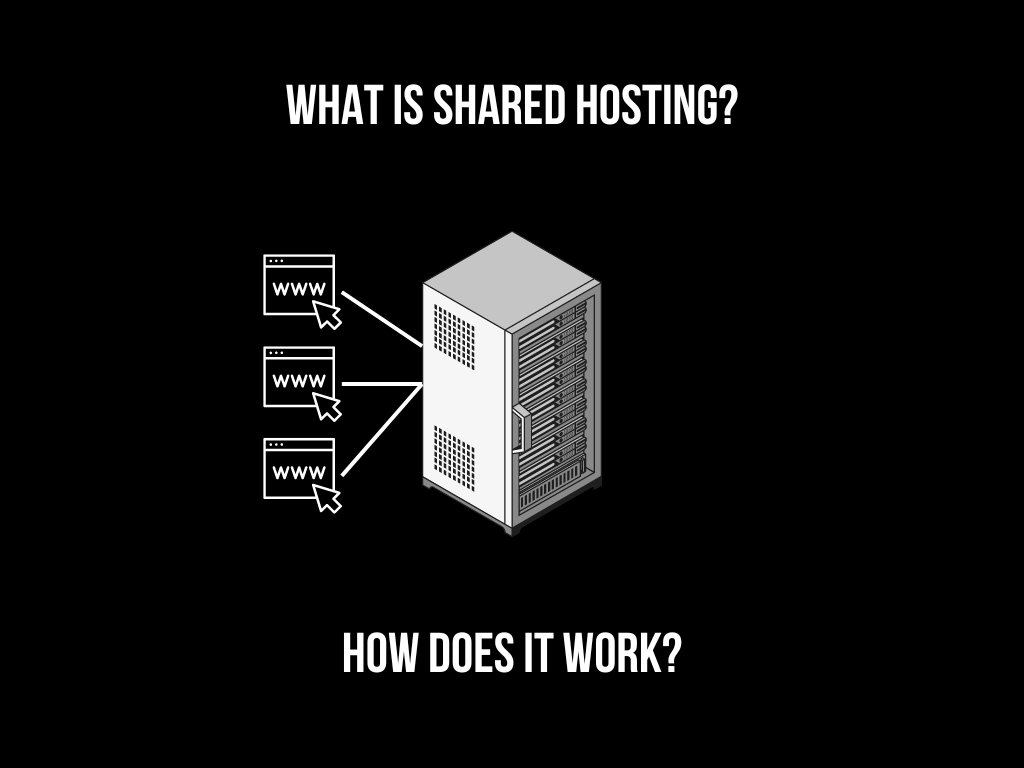Introduction
In the vast landscape of web hosting options, shared hosting stands out as a popular and accessible choice for individuals and businesses alike. Its appeal lies not only in its affordability but also in its simplicity and efficiency. Let’s delve into the benefits of shared hosting and unravel how it operates to serve the diverse needs of website owners.
Understanding Shared Hosting
Shared hosting involves multiple websites sharing resources on a single server. These resources include CPU, RAM and disk space. Each website hosted on the server is allocated a portion of these resources. This setup allows hosting providers to offer cost-effective solutions, as the expenses are distributed among several users.
Benefits of Shared Hosting
- Cost-Effectiveness
- Shared hosting is notably budget-friendly, making it an excellent option for individuals and small businesses with limited resources. By sharing server costs with other users, individuals can establish an online presence without breaking the bank.
- Easy Setup and Maintenance
- Shared hosting providers handle server management tasks such as hardware maintenance, software updates and security configurations. This hands-off approach allows users to focus on building and managing their websites without worrying about the technical aspects of server administration.
- User-Friendly Control Panels
- Most shared hosting plans come with user-friendly control panels, such as cPanel, Plesk or Cloud Panel, which simplify website management tasks. Users can easily upload files, create email accounts, install applications and monitor website performance through intuitive interfaces.
- Scalability
- While shared hosting may have resource limitations compared to other hosting options, many providers offer scalable plans that allow users to upgrade their resources as their websites grow. This flexibility ensures that users can adapt their hosting environment to accommodate increasing traffic and resource demands.
- Technical Support
- Shared hosting providers typically offer round-the-clock technical support to assist users with any issues or concerns they may encounter. Whether it’s troubleshooting website errors or configuring email settings, users can rely on knowledgeable support staff to provide timely assistance.
How Shared Hosting Works
- Server Allocation: When a user subscribes to a shared hosting plan, they are allocated a portion of the server’s resources. These resources are shared among multiple users, with each user receiving a predetermined amount based on their hosting plan.
- Isolation: While resources are shared among users, there is a level of isolation between websites to ensure security and stability. Each user’s files and data are stored with their designated directories, preventing interference from other users on the same server.
- Resource Management: Shared hosting providers employ resource management techniques to ensure fair distribution of resources among users. This may include usage limits and throttling mechanisms to prevent on user from monopolizing server resources and impacting others’ website performance.
- Security Measures: To maintain security within a shared hosting environment, providers implement measures such as firewalls, malware scanning, and regular security updates. While shared hosting inherently carries some security risks compared to dedicated hosting, reputable providers prioritize security to protect users’ websites and data.
- Performance Optimization: Shared hosting servers are optimized to accommodate the needs of multiple websites efficiently. Providers employ caching mechanisms, content delivery networks (CDNs), and other performance-enhancing techniques to ensure fast and reliable website loading speeds for all users.
Conclusion
In conclusion, shared hosting offers an array of benefits, including affordability, ease of use, scalability, and robust technical support. By understanding how shared hosting operates and leveraging its advantages, website owners can establish and maintain a reliable online presence without the complexities and cost associated with other hosting options.


Leave a Reply